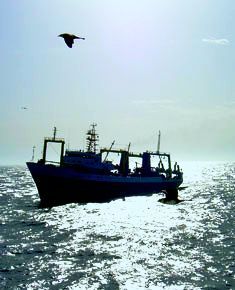The Russian Federal Property Fund has not yet decided on the size of a stake in Yuganskneftegaz that will be put up for sale
Published:
18 October 2004 y., Monday
The Russian Federal Property Fund has not yet decided on the size of a stake in Yuganskneftegaz that will be put up for sale. Neither did it decide on the starting price and the form of the public sale, Vladimir Zelentsov, spokesman for the Russian Federal Property Fund, told RBC.
“We are still waiting,” he said. At the same time, Mr. Zelentsov neither confirmed nor denied unofficial reports about the government’s plans to sell a 77 percent stake in Yuganskneftegaz for $4bn.
On October 12, the Russian Federal Property Fund received documents from the Russian Justice Ministry regarding the sale of Yuganskneftegaz’s assets to cover YUKOS’s tax debts. Earlier, Mr. Zelentsov said the Russian Federal Property Fund could auction Yuganskneftegaz in late November 2004. Information about the sale would be announced at the end of October 2004, he said.
The Justice Ministry of Russia decided to sell some of YUKOS’s assets through the Federal Property Fund because YUKOS had not been paying the tax debt quickly enough. The payment was “unjustifiable delayed”, according to the Justice Ministry. According to the Ministry, YUKOS’s confirmed tax debt is $3.73bn. The Justice Ministry also announced that Dresdner Kleinwort Wasserstein had valued Yuganskneftegaz at $10.4bn.
However, excepts from DrKW's report were published later, suggesting that Dresdner Kleinwort Wasserstein valued Yuganskneftegaz between $15.7bn and $18.3bn, taking into consideration the company’s net debt of $2.9bn and its potential tax liabilities. Sources who read the report, said $10.4bn was the most pessimistic valuation that could be applied if YUKOS lost its oilfield licenses.
Šaltinis:
rbcnews.com
Copying, publishing, announcing any information from the News.lt portal without written permission of News.lt editorial office is prohibited.
The most popular articles
 The financial crisis is having a serious impact on low-income countries.
more »
The financial crisis is having a serious impact on low-income countries.
more »
 The agreement was welcomed by the EU, which has led efforts to crack down on loose banking practices that caused the financial crisis.
more »
The agreement was welcomed by the EU, which has led efforts to crack down on loose banking practices that caused the financial crisis.
more »
 On 31 March this year, the boards of AB Bank SNORAS and AB “Invalda” approved of the purchase and sales transaction of AB “Invalda” financial group's companies.
more »
On 31 March this year, the boards of AB Bank SNORAS and AB “Invalda” approved of the purchase and sales transaction of AB “Invalda” financial group's companies.
more »
 MEPs will vote on Thursday 2 April on a first reading agreement on the voluntary EU Ecolabel (“EU flower”) system for environment-friendly products to become less costly and bureaucratic to use.
more »
MEPs will vote on Thursday 2 April on a first reading agreement on the voluntary EU Ecolabel (“EU flower”) system for environment-friendly products to become less costly and bureaucratic to use.
more »
 The fourth quarter of 2008 was not so good for the banking industry, and the financial conditions of commercial banks and savings and loans is expected to further deteriorate for the rest of 2009 and the first part of 2010, according to LACE Financial Corp.
more »
The fourth quarter of 2008 was not so good for the banking industry, and the financial conditions of commercial banks and savings and loans is expected to further deteriorate for the rest of 2009 and the first part of 2010, according to LACE Financial Corp.
more »
 MEPs recently gave the green light to a new trade deal between Europe and Caribbean countries.
more »
MEPs recently gave the green light to a new trade deal between Europe and Caribbean countries.
more »
 New VoIP Features Boost Flexibility, Mobility, Cost Savings for Organizations Seeking to Untether Workers.
more »
New VoIP Features Boost Flexibility, Mobility, Cost Savings for Organizations Seeking to Untether Workers.
more »
 According to the revised data, in IV quarter 2008, GDP at current prices made LTL 28578.8 million and against IV quarter 2007 decreased by 2.2 per cent.
more »
According to the revised data, in IV quarter 2008, GDP at current prices made LTL 28578.8 million and against IV quarter 2007 decreased by 2.2 per cent.
more »
 The EP Fisheries Committee rewrote the rules on recreational fishing in its consultative report, adopted Tuesday, on a proposed “control regulation” to ensure compliance with common fisheries policy (CFP) rules.
more »
The EP Fisheries Committee rewrote the rules on recreational fishing in its consultative report, adopted Tuesday, on a proposed “control regulation” to ensure compliance with common fisheries policy (CFP) rules.
more »
 In a measure of the Union’s strong growth prior to the financial crisis, the demand for EU trademark rights has shot up in recent years, creating an unexpected budget surplus.
more »
In a measure of the Union’s strong growth prior to the financial crisis, the demand for EU trademark rights has shot up in recent years, creating an unexpected budget surplus.
more »